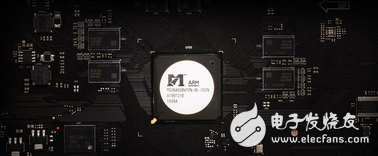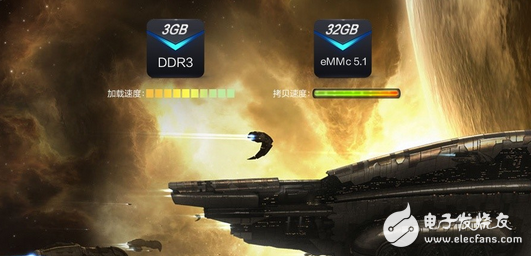In-depth analysis: Why is the 10-core smart TV still such a card?
In the early years when smart TVs were just emerging, major color TV manufacturers launched a "arms battle". The concepts of nuclear warfare and nuclear explosions emerged in an endless stream, and their focus was on the core number of smart TVs, from the initial dual core. , to the quad-core, to the eight-core, ten-core, and then to the 200-core, I feel that this value is still out of control, and can be suddenly replaced by hot words such as ultra-thin, curved surface, and OLED. "Competition" also just stopped.
Indeed, as TVs become more intelligent, screen size/sharpness is no longer the only standard for us to purchase TVs. Hardware performance and functionality will be the focus of many people. Let’s talk about how to pass The hardware parameters of the chip to select the smart TV.
First, look at the heart, CPU CPU. As the functions of smart TV systems become more and more complex, applications become more and more abundant, and the requirements for chip computing performance are getting higher and higher. The performance of the chip depends on the number of CPU cores and the running frequency. This will affect the smoothness of the UI system and various applications and games. In smartphones, quad-core and eight-core are common, and TVs certainly cannot fall behind.

At present, the Cortex-A17 and Cortex-A53 have become mainstream. The TV with Cortex-A7 and Cortex-A9 is somewhat worrying. Although the UI fluency can be ensured by simplifying the system functions, the future smart application may be Can't run smoothly. Especially in the 4K era, the performance requirements are even higher.
Second, the GPU, the graphic "brain." The GPU is similar to the graphics card on a computer, except that the TV does not have a separate graphics card. The GPU and CPU are integrated on one chip. The GPU is primarily responsible for graphics rendering, which is especially important for games, and requires a strong GPU and CPU to provide a smooth gaming experience.
If you want to play 3D games, you have to have a powerful GPU, because the workload of GPU rendering graphics will double in 3D mode. If the performance is not enough, it will be easy to appear.
At present, there are several GPU models in smart TVs, such as PowerVR SGX series and ARM Mali series.
Third, RAM runs memory, which is equivalent to blood vessels. Running the memory is relatively simple, mainly to see the size of the capacity, many old smart TV menus are very slow, often crash, one of the main reasons is that the memory is too small. Nowadays, Android 5.0 and above systems have higher and higher requirements for content. The 1GB memory mobile phone response is very slow, not to mention smart TV, so 2GB is the most basic requirement. Recently, some companies have proposed to fully enter the 3G era. One of them is the RAM running memory.

The next question is our focus today: "Why is the hardware configuration of some smart TVs already top-notch, but the more the TVs are used, the slower and slower?" Let’s take a look at the "cards" What are the basic reasons?
Question 1: More and more applications are insatiable
Red-shirted teacher Zhou Hongyi recently also greeted the greedy application on Weibo. No matter how big the running memory is, it will be slowed down by them. It is necessary to talk about those unscrupulous application developers. They will place a large number of advertisements in the APP, and there are many ways to implant them. There are also SDKs and APIs, because they can make a lot of money by placing advertisements.

When it comes to the placement of advertisements, some large-scale apps will require users to bind and install other apps when they download and install them. We really hate it. Sometimes an app finds an update, but when the user is updated, it is likely that a new icon will appear on the desktop. Imagine that this APP is installed more, how can your smart TV not be stuck?
Question 2: There are more nuclear, not smooth and noisy
I think that the core will not be stuck, and often such users will complain that "why ten cores will still be stuck!" In fact, the fluency of the system has little to do with several cores. The fluency we are talking about consists of two parts:
First, the fluency of the system itself is actually the fluency of the "starter" application; the second is the fluency of the application, which is the fluency of various applications.
What affects these two fluencies is not the core, but the performance of a single core and the bandwidth of memory. In our case, our "starter" and various applications can only use the previous or two cores. The use of the four cores is rare, and the use of the top eight cores is rare. So the speed of decision is not a few cores, but the performance of a single core!
Question 3: RAM is still very important
Is the larger the capacity of the RAM, the faster the smart TV will run? In fact, this problem has always been a problem entangled by many students. The intelligent TV of Android system runs at a slow speed. RAM does not affect the speed of smart TV. It is determined by the coordinated processing of CPU, GPU, RAM and ROM. CPU The processing power of the GPU is strong, the idleness of the RAM is greater than the minimum residual value of the system, and the number of garbage fragments in the ROM is small. These points are reached, and the speed of the smart TV is faster.
Generally, how many programs can be opened in 1GB of RAM. What is the essential difference between it and 2GB of RAM? How many applications can be opened without specific calculations, because each person's software is different and the memory used is different. Android system has a system adjustment rule, such as the setting of some smart TVs, the system is less than 21MB of RAM, it can not support the smooth running of the system, so there will be a phenomenon of stuck, and even some programs will be forcibly closed. For 1GB and 2GB RAM models, if the CPU, GPU, ROM, etc. are the same, mainly in large-scale applications, 2GB of RAM is more advantageous in large games. On the 1GB, there will be a slight card or forced shutdown.
door opener keychain no touch,no touch keychain,no touch tool keychain,no touch keychain bulk, no touch keychain wholesale
Shenzhen Konchang Electronic Technology Co.,Ltd , https://www.eclinusb.com
